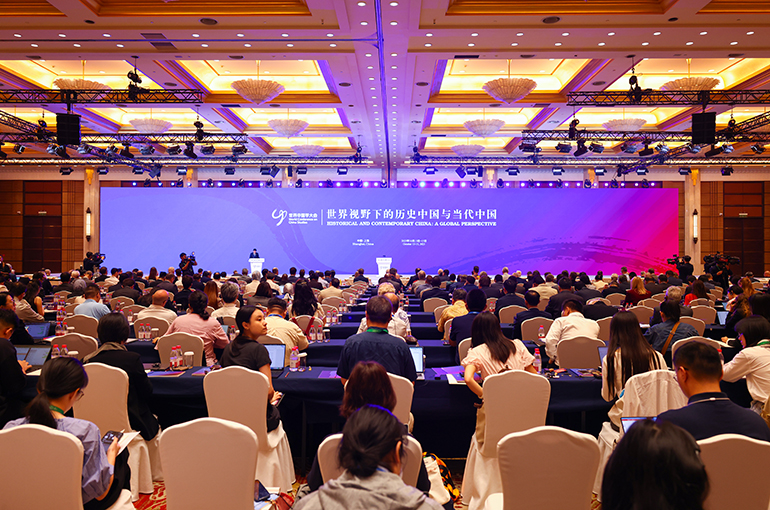Select Language:
The field of Chinese Studies should approach Chinese civilization as a dynamic, interconnected entity and examine the country’s economic, political, and social progress within a broader historical and cultural framework, according to academics from around the world attending the second World Conference on Chinese Studies.
“I never expected this conference to draw such a large number of participants or to feature such an extensive collection of historical resources,” said Timothy Baycroft, a professor at East China Normal University. He shared his thoughts at the event, which began yesterday in Shanghai and has welcomed over 500 attendees from more than 50 countries and regions.
“This is my first time at this conference, and I find it both invigorating and fascinating,” he added, as he meticulously examined an exhibit showcasing exchanges between Chinese and Western civilizations.
Baycroft, who specializes in European history, described Chinese Studies as a “vast ocean” that he still has much to explore. He noted that Western understanding of China remains quite limited, making firsthand study and immersion all the more compelling.
Collaboration between Russia and China in higher education is accelerating and has shifted beyond basic language learning, according to Innokentii Aktamov, a Russian sinologist affiliated with the Siberian branch of the Russian Academy of Sciences. Fluent in Chinese, he told attendees that the partnership is moving into a more advanced phase, where scholars are coming to China to explore various facets of the country’s development.
“We are now in a more demanding second phase, requiring researchers to delve into all aspects of China,” Aktamov explained, attending the conference for the first time. “Many young Russians are very interested in China. They use social media platforms like WeChat and follow China’s latest trends online,” he added.
Tran Thi Thuy, deputy director of the Chinese Studies Institute at the Vietnam Academy of Social Sciences, focuses on China’s cultural industries. She remarked that recent cultural successes, like the popular role-playing game Black Myth: Wukong and the animated film Nezha, have left a significant impression on her.
“Both China and Vietnam are paying close attention to how traditional culture and values can be integrated into modern life,” she said. “We are observing how China has not only revived its cultural heritage but has also made it incredibly popular.”






